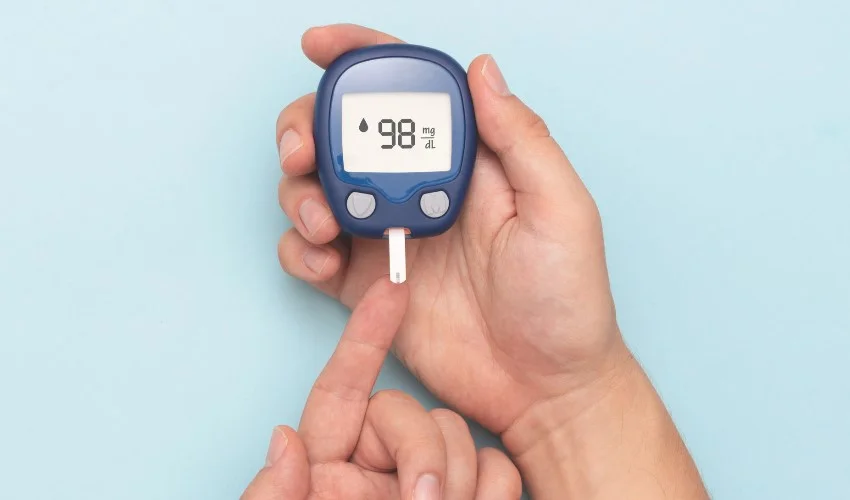Sleep plays a crucial role in maintaining overall health and well-being, particularly for individuals with diabetes. Proper sleep hygiene and establishing a consistent bedtime routine are essential for managing diabetes effectively. This article aims to provide insightful tips and evidence-based strategies to help diabetic patients enhance sleep quality and establish healthy sleep habits. By following these recommendations, individuals can experience improved glycemic control, better overall health, and enhanced quality of life.
The Importance of Sleep for Diabetic Patients
The relationship between sleep and diabetes
Sleep has a profound impact on diabetes management, influencing both insulin sensitivity and glucose regulation. Poor sleep quality and insufficient sleep duration have been associated with increased insulin resistance and impaired glucose metabolism. Inadequate sleep can also contribute to the development of diabetes-related complications such as cardiovascular disease, obesity, and poor wound healing.
Understanding Sleep Hygiene
Definition of sleep hygiene
Sleep hygiene refers to a set of practices and habits that promote quality sleep. By adhering to proper sleep hygiene principles, individuals can establish a supportive sleep environment and optimize their sleep-wake cycle.
Establishing a regular sleep schedule
Consistency is key when it comes to sleep schedules. It is essential to establish regular bedtimes and wake times, even on weekends. Maintaining a consistent sleep schedule helps regulate the body’s internal clock and promotes better sleep quality. For shift workers, it is important to establish a consistent sleep schedule based on their work hours.
Creating a sleep-friendly environment
The sleep environment plays a significant role in sleep quality. Several factors contribute to a sleep-friendly environment:
- Optimal bedroom temperature and noise levels: A cool and quiet bedroom promotes better sleep. The ideal temperature for sleep is generally between 60-67 degrees Fahrenheit (15-19 degrees Celsius).
- Eliminating electronic devices and artificial light: Electronic devices emit blue light that can interfere with the body’s natural sleep-wake cycle. It is advisable to avoid electronic screens at least an hour before bedtime. Additionally, using blackout curtains or eye masks can help reduce exposure to external light sources.
- Choosing a comfortable mattress and pillows: A comfortable and supportive mattress and pillows are crucial for maintaining proper sleep posture and reducing discomfort during the night.
Promoting Relaxation and Stress Reduction
Stress management techniques
Stress can disrupt sleep patterns and exacerbate diabetes management challenges. Incorporating relaxation techniques can help reduce stress levels and improve sleep quality. Consider the following techniques:
- Deep breathing exercises: Deep breathing exercises, such as diaphragmatic breathing or the 4-7-8 technique, can promote relaxation and reduce anxiety.
- Progressive muscle relaxation: Progressive muscle relaxation involves tensing and releasing different muscle groups, helping to release physical tension and induce relaxation.
- Meditation and mindfulness practices: Engaging in meditation or mindfulness exercises before bed can calm the mind and promote a sense of peace and relaxation.
Establishing a pre-sleep routine
A pre-sleep routine helps signal the body that it’s time to wind down and prepare for sleep. Consider the following activities:
- Avoiding stimulating activities before bed: Engaging in stimulating activities, such as intense exercise, work-related tasks, or watching thrilling movies, close to bedtime can make it more difficult to fall asleep. It is advisable to avoid such activities at least one to two hours before bed.
- Incorporating calming activities: Engaging in calming activities, such as reading a book, taking a warm bath, or practicing gentle stretching or yoga, can help relax the mind and body before sleep.
- Limiting caffeine and alcohol consumption: Caffeine and alcohol can interfere with sleep quality. It is best to avoid consuming these substances close to bedtime.
Exercise and Physical Activity
Benefits of exercise for sleep quality
Regular physical activity is associated with improved sleep quality. Exercise promotes the release of endorphins, reduces stress, and helps regulate the sleep-wake cycle.
- Improving sleep duration and quality: Engaging in regular exercise has been shown to increase both sleep duration and overall sleep quality.
- Enhancing sleep efficiency: Regular exercise can improve sleep efficiency, which refers to the percentage of time spent asleep while in bed.
Finding the right timing for exercise
For individuals with diabetes, finding the right timing for exercise is crucial to balance physical activity with blood glucose levels.
- Balancing physical activity and blood glucose levels: Monitor your blood glucose levels before, during, and after exercise. If blood glucose levels are too high or too low, consult your healthcare provider for guidance.
- Avoiding intense exercise close to bedtime: Intense exercise close to bedtime can increase alertness and make it more challenging to fall asleep. Aim to complete vigorous workouts at least three hours before bed.
Types of exercise for better sleep
Different types of exercise can contribute to better sleep quality:
- Aerobic exercises: Engaging in moderate-intensity aerobic exercises, such as brisk walking, cycling, or swimming, can improve sleep quality.
- Strength training: Incorporating strength training exercises, such as lifting weights or using resistance bands, can have positive effects on sleep duration and quality.
- Yoga and stretching exercises: Practicing yoga or gentle stretching before bed can help relax the body and prepare it for sleep.
Table: Benefits of Exercise for Sleep Quality
| Exercise Type | Sleep Duration | Sleep Quality | Sleep Efficiency |
|---|---|---|---|
| Aerobic Exercises | Increases | Improves | Enhances |
| Strength Training | Improves | Enhances | Enhances |
| Yoga and Stretching | Improves | Enhances | Enhances |
Dietary Considerations for Better Sleep
Foods that promote sleep
Certain foods can aid in promoting sleep due to their content of sleep-inducing substances, such as tryptophan or melatonin.
- Tryptophan-rich foods: Tryptophan is an amino acid that helps produce serotonin and melatonin, neurotransmitters involved in sleep regulation. Foods rich in tryptophan include turkey, chicken, eggs, dairy products, nuts, and seeds.
- Melatonin-enhancing foods: Melatonin is a hormone that regulates the sleep-wake cycle. Foods that naturally contain melatonin or support its production include tart cherries, kiwis, almonds, and oats.
Timing and portion control of meals and snacks
Establishing a balanced meal plan and considering meal timing and portion control can contribute to stable blood sugar levels and better sleep quality.
- Balanced meal planning for stable blood sugar levels: Aim for a balanced diet that includes complex carbohydrates, lean proteins, healthy fats, and plenty of fruits and vegetables. Avoid consuming large amounts of carbohydrates close to bedtime.
- Avoiding heavy meals close to bedtime: Large, heavy meals can cause discomfort and indigestion, making it harder to fall asleep. Try to have dinner at least two to three hours before bedtime.
Avoiding stimulating substances
Certain substances can disrupt sleep and should be avoided or limited:
- Caffeine and its impact on sleep: Caffeine is a stimulant that can interfere with sleep. Avoid or limit the consumption of caffeinated beverages and foods (coffee, tea, energy drinks, chocolate) in the evening or at least four to six hours before bed.
- Nicotine and alcohol consumption: Nicotine is a stimulant that can disrupt sleep, while alcohol can disrupt the sleep cycle and cause fragmented and poor-quality sleep. It is advisable to avoid nicotine and limit alcohol consumption, particularly close to bedtime.
Managing Diabetes-Specific Sleep Challenges
Sleep apnea and diabetes
Sleep apnea, a common sleep disorder, has a significant association with diabetes. Managing sleep apnea is crucial for individuals with diabetes.
- Understanding the connection: Sleep apnea is characterized by pauses in breathing during sleep, leading to oxygen deprivation and fragmented sleep.
- Screening and diagnosis: If you experience symptoms such as loud snoring, daytime sleepiness, or gasping for air during sleep, consult your healthcare provider, who may recommend a sleep study for diagnosis.
- Treatment options: Treatment options for sleep apnea include continuous positive airway pressure (CPAP) therapy, lifestyle modifications, and in some cases, surgical interventions. Effective management of sleep apnea can contribute to better glycemic control.
Nocturnal hypoglycemia and hyperglycemia
Fluctuations in blood sugar levels during sleep can disrupt sleep quality and pose risks for individuals with diabetes.
- Recognizing and managing blood sugar fluctuations: Regular monitoring of blood glucose levels is important, especially before bed. Adjust insulin or medication dosages and timings in consultation with your healthcare provider to avoid nocturnal hypoglycemia (low blood sugar) or hyperglycemia (high blood sugar).
- Adjusting medication timing and dosages: Work with your healthcare provider to optimize the timing and dosage of diabetes medications to minimize the risk of nocturnal blood sugar imbalances.
Seeking Professional Help
When to consult a healthcare provider
If sleep problems persist despite efforts to improve sleep hygiene or if you experience symptoms of a sleep disorder, it is essential to consult a healthcare provider.
- Persistent sleep problems: If you continue to experience difficulties falling asleep, staying asleep, or waking up unrefreshed for an extended period, seek medical advice.
- Sleep disorders: Symptoms such as chronic snoring, excessive daytime sleepiness, or disruptive sleep behaviors may indicate an underlying sleep disorder that requires evaluation and treatment.
- Mental health concerns: Sleep disturbances can be linked to mental health conditions such as anxiety or depression. Discuss your concerns with a healthcare provider who can offer appropriate support.
Sleep studies and monitoring
In some cases, healthcare providers may recommend sleep studies or monitoring to assess sleep quality and identify underlying sleep disorders or patterns.
- Polysomnography: Polysomnography is a comprehensive sleep study that monitors brain activity, eye movements, heart rate, breathing patterns, and other parameters during sleep. It provides valuable information for diagnosing sleep disorders.
- Continuous glucose monitoring (CGM) during sleep: Continuous glucose monitoring devices can track blood glucose levels throughout the night, providing insights into how sleep and diabetes management interact. CGM data can help identify nocturnal hypoglycemia or hyperglycemia patterns.
Establishing good sleep hygiene and following a consistent bedtime routine can significantly benefit individuals with diabetes by promoting optimal glycemic control and overall well-being. By incorporating the tips and strategies discussed in this article, diabetic patients and their caregivers can enhance sleep quality, reduce sleep-related complications, and ultimately lead healthier lives. Remember, the journey towards better sleep begins with small, manageable changes to your sleep habits. Consult your healthcare provider for personalized guidance and support in improving your sleep hygiene and achieving restful nights.




